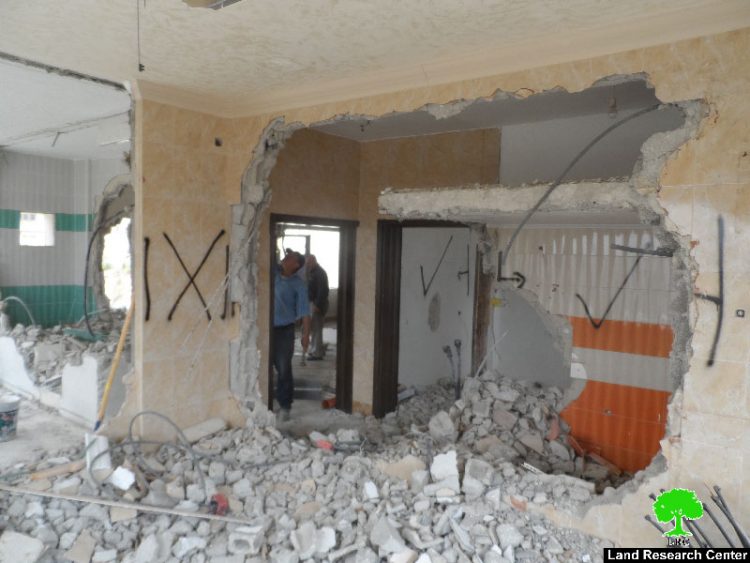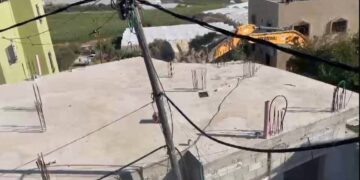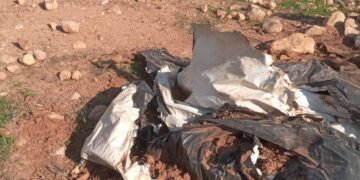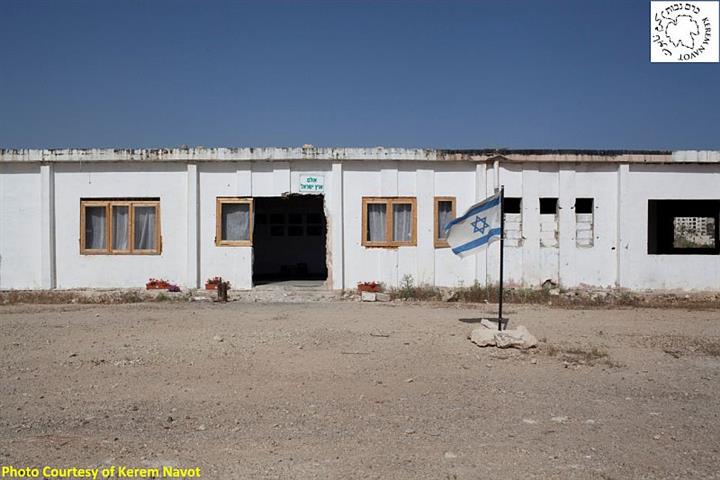- Violation: demolition of a house
- Location: Nablus city
- Date: May 03, 2016
- Perpetrators: Israeli Occupation Forces
- Victims: family of prisoner Zaid Amer
Details:
Israeli Occupation Forces on May 03, 2016 demolished the residence of prisoner Zaid Amer (28). Noteworthy, the prisoner was accused of taking part in the assassination of a colonist and his wife nearby Itamar colony on October 2015.
According to eyewitnesses, a massive force from the occupation's army raided the neighborhood where the targeted house is founded and imposed a curfew on the area. The force then sabotaged the 136m2 house that is founded in the fifth floor of an eight story building. Noteworthy, Ziad was arrested after forty days from being married to Rasha Muneer (23).
It should be marked that the family of prisoner Ziad received a demolition order on the house on February 20, 2016. The owners objected to the orders but objection was met with refusal. On March 21, 2016 the family submitted a plea to Israel Supreme Court to stop the demolition, given that the house is owned by the prisoner's father. The plea was rejected and a five day deadline was given to the affected to evict the house.
Rubbles of the prisoner's house
Demolishing the residence of prisoner Zaid increased the total number of demolished houses in Nablus to seven. Note that those houses belong to prisoners accused of taking part in the assassination operation.
Land Research Center documented the demolition of thirty three houses on the claim of security purposes. Eleven houses were demolished in Jerusalem, seven in Nablus, five in Ramallah, five in Hebron and four in Jenin.
It should be marked that the order was issued in reference to the British Emergency Law for the year 1945, taking into consideration that this law was abolished. “Confiscation and demolition” according to article 119 of the law indicates that it is not allowed to re-construct in the demolition location. The body of the article is as follows:
Regulation 119 of the Defence (Emergency) Regulations, 1945
PART XII – MISCELLANEOUS PENAL PROVISIONS
Regulation 119 – Forfeiture and demolition of property, etc. 119.
(1) A Military Commander may by order direct the forfeiture to· the Government of Palestine of any house, structure, or land from which he has reason to suspect that any firearm has been illegally discharged, or any bomb, grenade or explosive or incendiary article illegally thrown, or of any house, structure or land situated in any area, town, village, quarter or street the inhabitants or some of the inhabitants of which he is satisfied have committed, or attempted to commit, or abetted the commission of, or been accessories after the fact to the commission of, any offence against these Regulations involving violence or intimidation or any Military Court offence ; and when any house, structure or land is forfeited as aforesaid, the Military Commander may destroy the house or the structure or anything on growing on the land.
(2) Members of His Majesty's forces or of the Police Force,· acting under the authority of the Military Commander may seize and occupy, without compensation, any property in any such area, town, village, quarter or street as is referred to in subregulation (1), after eviction without compensation, of the previous occupiers, if any.
Land Research Center LRC sees that demolitions contradict with all of the International conventions and Humanitarian laws including:
- Article 17 of the (1948) Universal Declaration of Human Rights stating: “Everyone has the right to own property alone as well as in association with others. No one shall be arbitrarily deprived of his property.”
- Section ‹G› of article 23 of the (1907) The Hague Conventions asserting: “In addition to the prohibitions provided by special Conventions, it is especially forbidden to destroy or seize the enemy's property, unless such destruction or seizure be imperatively demanded by the necessities of war.”
- Article 53 of the Geneva Fourth Convention (1948) declaring: “Any destruction by the Occupying Power of real or personal property belonging individually or collectively to private persons, or to the State, or to other public authorities, or to social or cooperative organizations, is prohibited, except where such destruction is rendered absolutely necessary by military operations.”
Prepared by
The Land Research Center
LRC




















